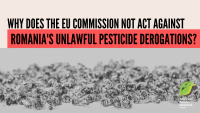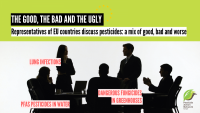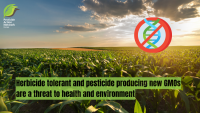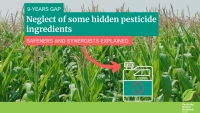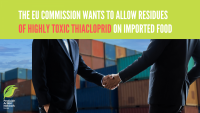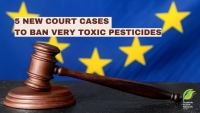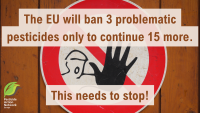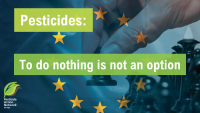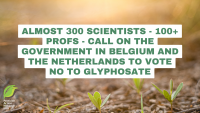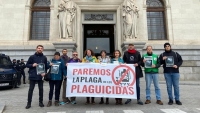Blog
Why does the EU Commission not act against Romania's unlawful pesticide derogations?
Romania is breaking EU law by allowing the use of banned pesticides. In January last year, the European Court of Justice ruled that such derogations go against EU law.
EU pesticide committee SCoPAFF: the good, the bad and the ugly
The good, the bad and the ugly. That could be the theme of the SCoPAFF meetings on pesticide legislation in the EU. In the next January meeting, representatives of EU countries plan to mix a few good developments with several bad ones.
Deregulation of new GMOs: an open door for herbicide tolerant and pesticide producing plants?
The EU institutions are currently discussing a proposal to deregulate plants produced with new genomic techniques (NGTs). The hurry and lack of scientific basis for this proposal is a huge threat to health and environment.
Addressing the 9-years Gap: The Long-Awaited Proposal on Safeners and Synergists
Safener, for who? Synergist, with what? Overlooked yet important for public health and especially for the environment, a proposal from the European Commission (EC) could be voted on by European Member States by the end of January. The focal point?
Should we allow residues of EU-banned Thiacloprid in imported food?
The European Commission wants to allow residues of reprotoxic Thiacloprid on imported food. This is not in line with EU law, is bad for health and the environment and puts EU farmers in unfair competition with those in exporting countries.
Générations Futures fights prolongation of 5 highly toxic pesticides in EU Court
Our French member Generations Futures has launched legal actions against the prolongation of 5 very toxic pesticide active substances in EU Court. They also published a new report to denounce the systematic prolongations system used by the EU commission.
The EU will ban three problematic pesticides only to continue 15 more
The EU is falling increasingly behind in protecting health and the environment. In this week's meeting, the responsible authorities will discuss a ban on three very problematic pesticides.
Pesticides: To do nothing is not an option
Last week was a terrible week for health, environment, reason and democracy. A majority in the EU Parliament buried the regulation that should have halved the use of pesticides in Europe and prohibited their use in our children's playgrounds and schools.
Almost 300 scientists - 100+ profs - call on the government in Belgium and the Netherlands to vote no to glyphosate
The pressure to vote NO to glyphosate on EU governments is increasing. After clear calls by civil society, 2,5 million signatures and a very clear IPSOS opinion poll scientists put their weight behind the call.
150 Spanish organisations sign the Plague of Pesticides Manifesto: They ask for a vote against glyphosate and for drastic pesticide reduction
November is a decisive month for truly sustainable food and agriculture in the European Union. For the first time in its history, it will decide whether to reduce the use of pesticides throughout the EU.
